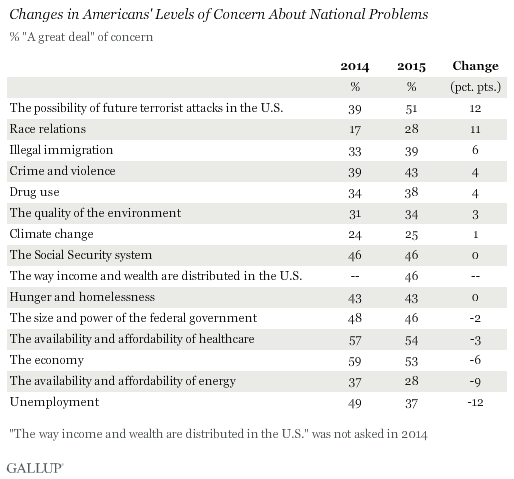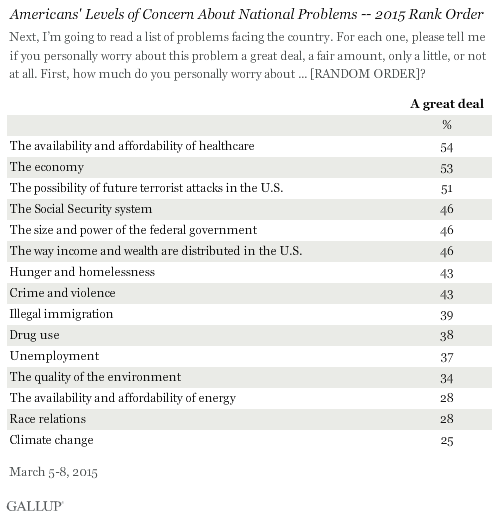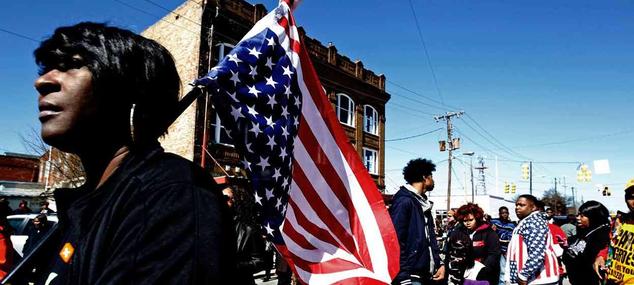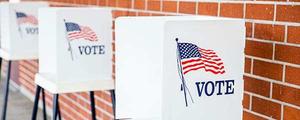Story Highlights
- Worries about terrorism, race relations increase most since 2014
- Concerns about unemployment, affordable energy decrease most
- Americans most worried about healthcare, economy and terrorism
WASHINGTON, D.C. -- Out of 15 domestic issues, Americans' concerns about terrorism and race relations have risen most sharply over the past year. The percentage of Americans who worry "a great deal" about the possibility of a terrorist attack (51%) climbed 12 percentage points from 2014 to 2015, while concerns about race relations (28%) surged 11 points. Americans' worries about illegal immigration also climbed over the past year, increasing six points to 39%.

These data are from a March 5-8 Gallup poll, which asked Americans about the degree to which they are worried about each of a list of problems and issues.
Events in the past year such as the terrorist attack on a French newspaper's office, the rise of ISIS and ongoing protests over a white police officer in Ferguson, Missouri, shooting and killing an unarmed black man have likely played a role in the uptick in Americans' worries about a possible terrorist attack and race relations.
On the other hand, Americans' concerns about unemployment have fallen substantially over the last year. While nearly half of Americans (49%) said in 2014 that they had a great deal of worry about the job market, this figure has since dropped to 37%, a level not seen since before the most recent economic recession. Similarly, the percentage saying they worry a great deal about the economy has fallen six points, which is consistent with higher economic confidence over the past year and a slightly higher rate of growth in the national GDP in 2014 than in recent years.
The percentage of Americans who worry about the availability and affordability of energy has also dropped nine points since last year, to 28%.
Healthcare, Economy Are Issues Americans Worry Most About
Overall, Americans worry most about the availability and affordability of healthcare (54%), the economy (53%) and the possibility of a future terrorist attack in the U.S. (51%).
Nearly half of Americans express a great deal of worry about the Social Security system, the size and power of the federal government and the way income and wealth are distributed in the U.S.
On the other hand, Americans express the least amount of concern about climate change -- 25% have a great deal of worry -- confirming that despite widespread news coverage of the implications of changing temperatures, Americans are not highly worried about the issue. Additionally, less than a third of Americans worry a great deal about race relations and the availability and affordability of energy.

Bottom Line
The events of the past year have clearly shifted Americans' relative levels of worry about a number of issues facing the country. Terror attacks in Paris and the rise of ISIS have formed the backdrop to a significant increase in concerns about such attacks taking place on American soil. At home, the racially charged incidents in Ferguson and elsewhere have amped up conversations on racism and police brutality, often creating a wedge within communities.
Meanwhile, gains in unemployment and economic growth and lower gas prices have provided a sense of economic relief to many Americans and have alleviated worries about economic issues.
Survey Methods
Results for this Gallup poll are based on telephone interviews conducted March 5-8, 2015, on the Gallup U.S. Daily survey, with a random sample of 1,025 adults, aged 18 and older, living in all 50 U.S. states and the District of Columbia. For results based on the total sample of national adults, the margin of sampling error is ±4 percentage points at the 95% confidence level. All reported margins of sampling error include computed design effects for weighting.
Each sample of national adults includes a minimum quota of 50% cellphone respondents and 50% landline respondents, with additional minimum quotas by time zone within region. Landline and cellular telephone numbers are selected using random-digit-dial methods.
Learn more about how Gallup Poll Social Series works.

